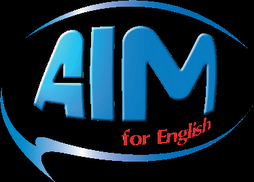Lost in Translation.
Websites, reports, business proposals – all can be full of good information, clear argument and inspiring design. And all can fail totally in their basic purpose if their language is faulty in some way. That’s because we automatically devalue the work that went into a badly written piece, even if it’s only the language that is at fault. A badly written piece makes us uneasy about product quality, customer service or a host of other important features of the company concerned.
Now- which language can you be most confident of writing well? Scarcely anyone in the world can be totally confident in any but their mother tongue. Indeed many of us find that even the language of our childhood can present challenges from time to time. And the best writers tend to be those who recognise the subtle mistakes they are capable of making, and automatically proof-check for them.
Probably fewer than one in a million of the world’s population can write flawlessly in a language other than their mother tongue. And writing English, the de facto international language, is difficult. Especially if you were not brought up speaking it, and were not educated to a high level in it, and have not read hundreds of books and thousands of newspapers written in English.
Pitfalls are legion. Vocabulary and grammar, of course. Also punctuation, which is a real problem for many native English speakers. And then there is the minefield of “register”. My dictionary defines this as “ a form of a language associated with a particular social situation or subject matter”. Whether you are writing a technical paper or a sales brochure, if you get the register wrong your work is wasted.
So here are three golden rules. First, don’t assume that if you speak English well you can write it equally well. Secondly, write exactly what you want to say, in your native language. Thirdly, get a bilingual service to write your message in English. Please note that I’m not using the word “translation” here. The final message that appears on your website or in your brochure will almost certainly not be a direct translation of your original. It will be a new piece of creative writing. Your original will be translated into an English draft, and this will be used as a reference for a new English text
To close, here’s a thought about the Internet. It’s less formal than the world of print. So you can’t just put your brochure on the web; you do have to produce something new. It’s quick and easy to do this. But any mistake may potentially influence thousands of potential customers. So it’s even more important to make sure that whatever you publish on the Internet is correct.
Here’s a link to a group of English and Indonesian teachers based in Jakarta who can make sure that your brochures, reports, proposals and websites are doing the job you want them to do. English language training and translation in Jakarta Indonesia
Tuesday, February 5, 2008
Subscribe to:
Post Comments (Atom)


No comments:
Post a Comment